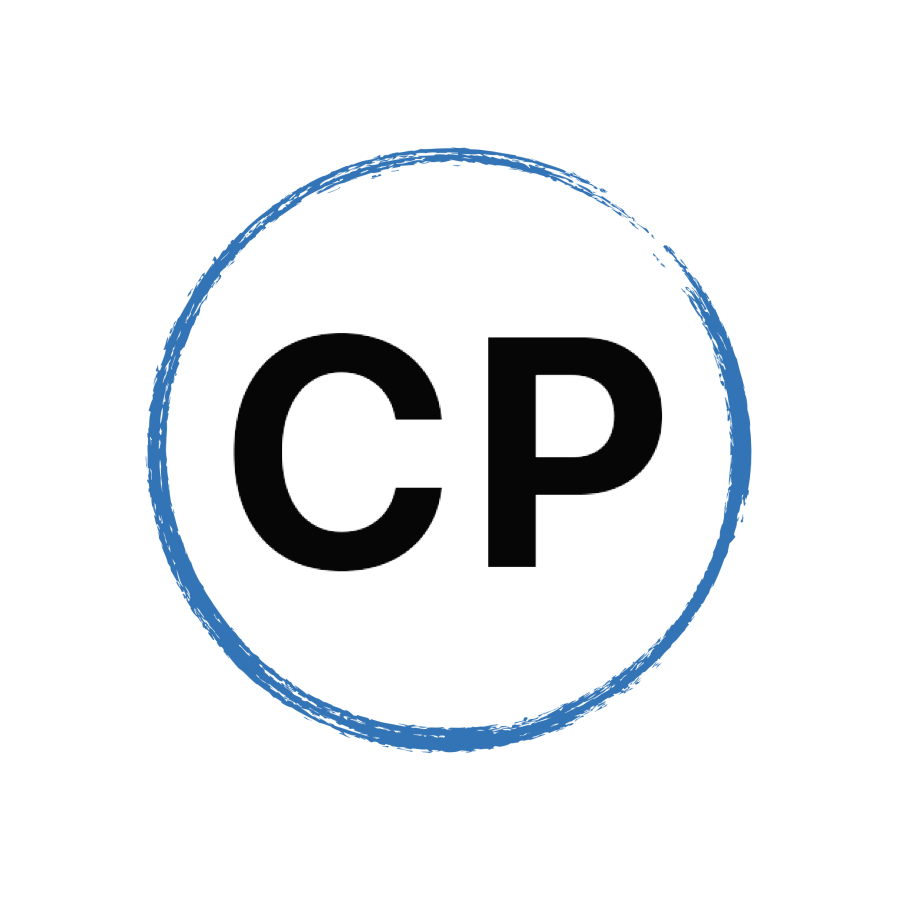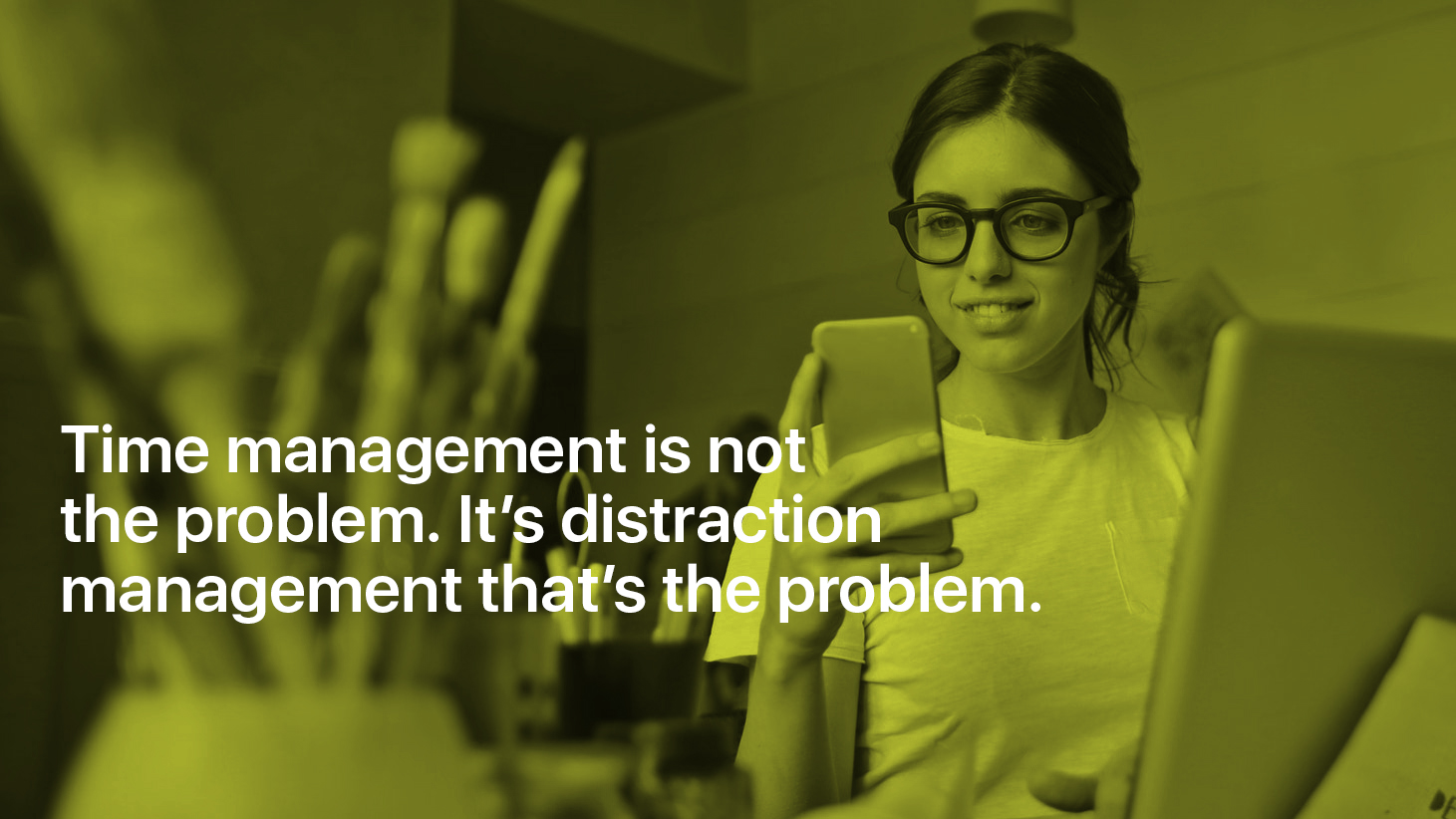Why Time Management is Not the Problem and Distraction Management is.
These days it seems popular to attack companies like Facebook, Apple and Google for not doing more to prevent tech addiction. It is as if these companies — that give us tools to help us get our work done better or keep in touch with friends and families across the world — are somehow responsible for our inability to manage what we do on their products. It is very easy to complain about how little time we have to get everything done and blame others for the problem when really the problem is ours and our inability to manage the distractions that come at us every day.
When it comes to time, nothing has changed for hundreds of years. We still only get twenty-four hours. We are not getting any less than the likes of Edison or Newton or Einstein. They had twenty-four and so do you. The problem is not with time, the problem is what you do with the time you have each day.
The biggest difference between Edison, Newton, Einstein and us is technology. Edison, Newton and Einstein did not have computers and mobile phones. They had minimal technology in their lives. If they wanted to research something they had to physically go to the library or visit someone in person to find the information. In Newton’s time, those visits could have involved travelling for days as the automobile was a long way from being invented. People like Edison, Newton and Einstein were incredible. To access the information they needed in order to move their work forward required a lot of effort. For us, to access the information we need requires a few taps on a screen. We should be out-performing these great people, yet most of are not. Why?
The simple answer is distractions. While it is much easier for us to access information, it is also much easier for us to get taken down rabbit holes of irrelevance. When we open up our phones the first thing we see are our notifications. Messages from our Facebook friends, emails from our colleagues and customers. We click on our messages and get lost in a conversation with our colleague for thirty minutes. Then we open up Facebook to comment on our best friend’s honeymoon picture and while we are there we see a cute little puppy video. And on it goes, rabbit hole after rabbit hole of distraction. Before you know it two or three hours have gone by and you haven’t started the research you planned to do and then you tell anyone who listens how incredibly busy you are.
Now it’s easy to blame the tech companies. “Apple and Google need to do something to prevent tech addiction”. “Facebook’s building a social network designed to turn us into device addicts”. Of course, they are. That’s their business. But wait a minute. Nobody forced us to download the Facebook or Twitter app. No one forced us to buy a smartphone. These were all our decisions. We chose to have a smartphone. We chose to download Facebook, Twitter and Snapchat apps onto our phone.
We are responsible for how we spend our time. That was true in Edison’s and Newton’s time and it is still true today. We are 100% responsible for how we spend our time. If we allow ourselves to be distracted by Facebook posts, messages from our friends and colleagues and emails when we really should be focused on doing some work, that is never the fault of Facebook, Apple or Google. That’s is 100% our fault.
Unlike the Tobacco industry forty years ago, tech companies are not trying to hide the negative effects of device addiction. Their whole marketing revolves around their product’s ability to stay connected and in touch with our friends and colleagues. Their goal is to make staying in touch with our friends and family easier, simpler and less expensive and to me, that is a very good thing.
The answer to our inability to get our work done is to take responsibility for how we spend our twenty-four hours. It is not difficult to turn off notifications on our devices for all except the important. It is not difficult to turn on “do not disturb” for an hour or two while we get on with the work that matters. Your friends won’t desert you if you do not reply immediately. Your boss won’t fire you if you take an hour to reply to her email and you won’t lose your best customer because you missed their call.
Taking control of your time and managing your distractions is not impossible. Every Monday morning, when I write this blog post, my email is shut down, my phone is on do not disturb and for ninety minutes I have complete silence to focus on writing. It is not difficult and it results in a completed first draft of a blog post and a real sense of accomplishment at the beginning of the week. Likewise, when I record my YouTube videos on a Saturday afternoon, I turn on do not disturb on all my devices and for two to three hours I am focused on nothing else but recording those videos.
If you want to stop feeling overwhelmed and get more of your important work done, then start managing your distractions. There are times when you need to shut off distractions and there are times when you can welcome distractions. No one is saying you should become a robot of productive output. But equally, there are times every day when you need to sit down and be focused on the work that needs doing. That is the time to turn off the distractions for an hour or two so you can focus on what is important. None of this is difficult. It’s not quantum physics or the laws of motion and universal gravitation.
Thank you for reading my stories! 😊 If you enjoyed this article, please hit the like button below It would mean a lot to me and it helps other people see the story.
My purpose is to encourage you to live the life you desire. To help you find happiness and become better organised and more productive so you can do more of the important things in life. If you want to learn more about how I can help you, have a look at the various online courses I have. There might be something there that could change your life!
If you would like to learn more about the work I do, and how I can help you to become better organised and more productive, you can visit my website or you can say hello on Twitter, YouTube or Facebook and subscribe to my weekly newsletter right here.

